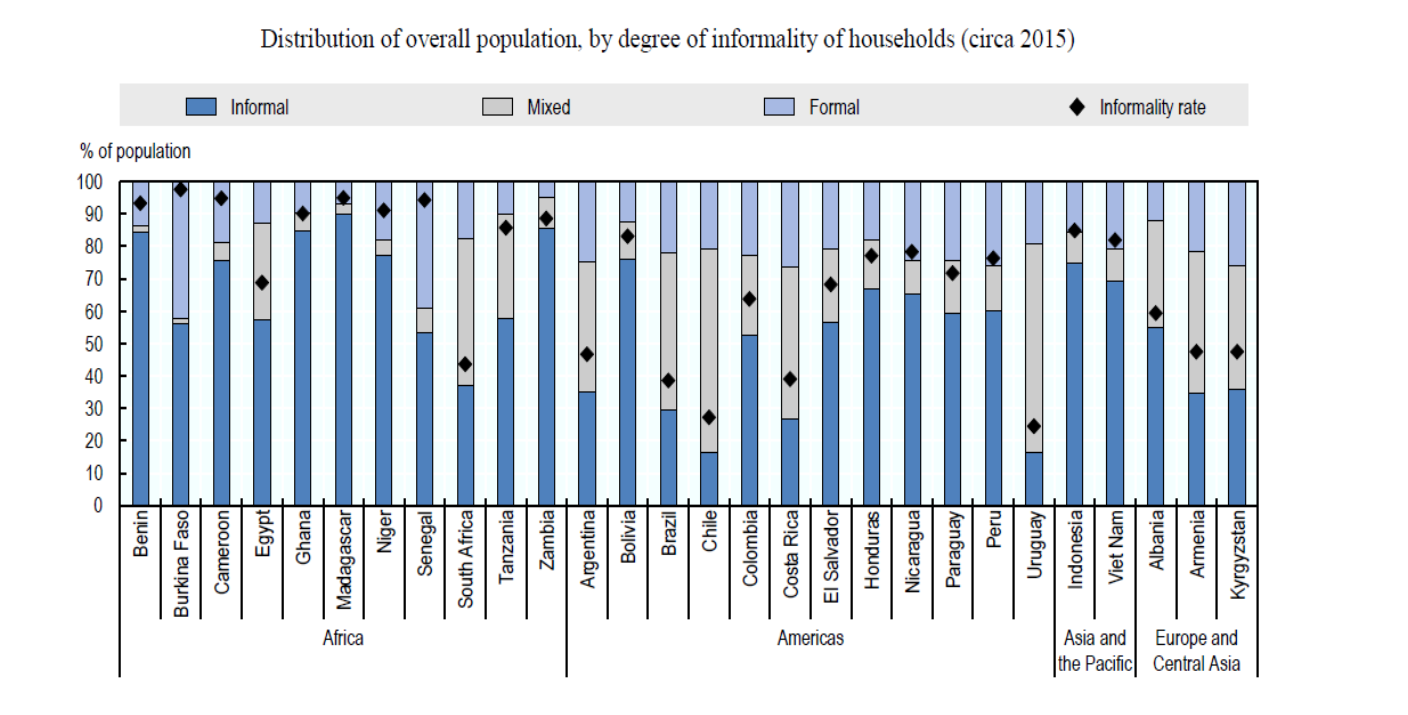It’s official; the world economy is marching towards a recession projected to be the biggest since the 1930s depression. Fitch Ratings, a major credit rating agency, has adjusted its expectations for forecasts for 2020 to predict that the world economy would decline by 1.9% throughout the year, while the International Monetary Fund has revealed a gloomy prediction of a 3% shrink in the global economy over 2020, a stunting (yet expected) reversal from projected 3.3% of growth it had predicted in January.
“The forecast fall in global GDP for the year as a whole is on par with the global financial crisis but the immediate hit to activity and jobs in the first half of this year will be worse”, said Brian Coulton, Fitch’s chief economist. Similarly, the IMF’s chief economist described the situation a ‘crisis like no other […] there is continued severe uncertainty about the duration and intensity of the shock.”
Egypt, one of the region’s most diversified economies, won’t be shielded from the economic downturn. Major revenue-generating industries in the country have already seen major slumps, or in the case of tourism, a total shutdown. But back in 2009, Egyptians barely felt the impact of the financial crisis on their daily lives. That was, for the most part, due to Egypt’s strong and resilient informal economy, accounting to more than half of the country’s economy in most estimates, in a similar trend to most developing and emerging economies; figures obtained by CID Consulting reveal that informality represents 70% of all employment in such economies.
 Courtesy of CID Consulting
Courtesy of CID Consulting
When traditional manufacturers struggle to cope with heightened market demands, particularly in times of crises, the informal economy often has the capacity and flexibility to fill in such gaps in supply, however not always in the most efficient of ways.
“The informal sector has been the real savior of Egypt in the past,” said Alaa Fahmy, industrial development expert and CEO of Enroot Development to Business Forward in an earlier interview. “In 2009, it [the informal economy] effectively shielded Egypt from the financial crisis. The issue is that the informal market can indeed fill in those market gaps, but it usually does so in an unstructured and unorganized manner.”
The good news is that most sectors of the informal economy can still function as close to normal as possible during the crisis, and some of these sectors already perform a vital role in protecting Egyptians from infectious diseases. “Most sectors can do that (function normally), like service sectors which include farmers, carpenters, plumbers, electricians, truck drivers, household cleaners,” said Laila Iskandar, CEO of CID Consulting and former minister of state for environment affairs. “And amazingly also the garbage collectors who protect us from cholera amidst the COVID-19 pandemic, are also expected to continue working normal through the pandemic.”
Iskandar, on the other hand, predicts that limited mobility necessitated by the outbreak will impact the informal sector’s ability to be as economically active as it would otherwise be, limiting the sector’s ability to be as vital a lifeline to Egypt’s economy as it was in 2009.
It’s noted that most informal workers have no choice but to continue working as they’re mostly daily-wage workers who rely on their daily income to survive. A number of initiatives and packages were announced by the government, private businesses and NGOs to limit the effects of the crisis on the well-being of households run by informal workers, most prominent of which is a presidential decision to grant informal workers a total of EGP 1500 ($95), paid in EGP 500 ($31) installments over a period of three months, as announced by Manpower Minister Mohamed Saafan, who hasn’t specified the exact number of those entitled to the payment.
Furthermore, there are certain activities that are best left to formalized manufacturers. As news emerged of a government-crackdown on informal, small-scale factories producing hand sanitizers and face masks, Iskandar cautioned that it is indeed a bad idea to allow such items to be produced by the informal economy. “These items need to be undertaken by authorized entities adopting strict sanitary standards,” she elaborates.
Farmers to the rescue
What then is the sector in which informal workers are set to make the most contribution in the coming while? The most obvious answer would be agriculture, where the informal economy is already making a sizable contribution to the economy. According to figures by CID consulting, the informal economy already contributes near to 10% to the country’s GDP – a figure that jumps to over 20% when factoring in informal agriculture workers.
“I don’t expect the agriculture industry to be heavily affected by COVID-19 in the short term,” says environment and agriculture expert Ithar Khalil to Business Forward. “So far, the virus isn’t widespread in agriculture areas, and the government has done a really great job so far when cases have emerged in an Egyptian village – they immediately isolated the infected and imposed strict quarantine measures on the rest of the village.”
As it did during the 2009 financial crisis, Khalil expects the sector will continue to be an engine of economic growth in Egypt.
“Most farmers in Egypt get more than 80% of their agriculture inputs, like fertilizers, from local manufacturers, who have so far been operating normally. So I don’t expect a downfall in production, to the contrary; countries like the UAE and Saudi Arabia have relaxed their importing policies of agriculture and food products, which could present great exporting opportunities for our farmers.” ?????? ?? ?????









